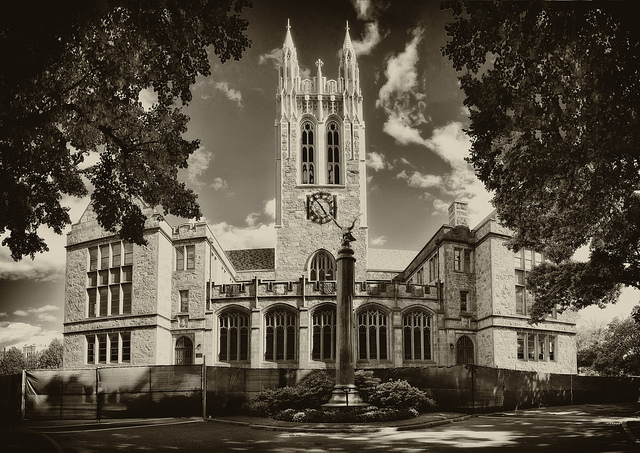

College graduates held onto more jobs during the recession than those who only completed high school, according to a new Georgetown study. They also continue to earn more: somewhere between $280,000 and $550,000 over a lifetime.
Young people considering college should certainly be aware of these numbers, but they should also take them with a grain of salt. A statistical average provides meaningful information about a population, but not an individual. Just because many people find financial security through college doesn't mean you must also.
Start by considering that average incomes vary hugely across various colleges and majors. Petroleum engineers earn a whole lot more ($155,000) than Child & Development Studies majors ($40,500), and MIT grads earn much more ($115,000) than Dakota State University grads ($52,400). Those Ivy League engineers, bankers, and economists of the world do an awful lot to skew the averages upward. If none of these paths appeal (or are accessible) to you, then they're really only inflating your dreams of stuffing a mattress with $100 bills on graduation day.
There are plenty of high-paying jobs that don't require a college degree. Many are in the tech sector, a field with which college simply cannot keep pace. Others such as construction managers, small business owners, and real estate brokers often break six figures.
But more important than quibbling over average incomes is recognizing that money is an incomplete way to measure educational success. A better measure is one's capacity to create value for others. And it's entirely possible to create a large amount of value without earning a large amount of money.
We citizens of the developed nations are especially privileged in this regard: we can afford not to be wealthy while still pursuing our dreams. As the writer and former Yale professor William Deresiewicz argues,
"...the opportunity not to be rich is one of the greatest opportunities with which young Americans have been blessed... You can live comfortably in the United States as a schoolteacher, or a community organizer, or a a civil rights lawyer, or an artist — that is, by any reasonable definition of comfort. You have to live in an ordinary house instead of an apartment in Manhattan or a mansion in L.A... [B]ut what are such losses when set against the opportunity to do work you believe in, work you're suited for, work you love, every day of your life?"*
Facing the increasing costs — both of money and time — of higher education, some young people today are making the calculated decision to postpone or forego college. (Here are a few examples, and here are a few more.) These autodidacts aren't wasting their lives in their parents' basements: they're educating themselves and gaining much of the "college experience" for an incredibly low price. They're taking advantage of their opportunity to do work that they believe in, even when that work doesn't pay well.
Of course, those who forego college in favor of self-directed learning are a tiny slice of the statistical pool of high school graduates on which the Georgetown study gloomily reports. Not everyone can or should skip college. But such outliers should remind us of how little an "average" can mean to an individual's path and how success is entirely attainable without formal credentials.
Image: Flickr / Werner Kunz
* Two of the professions Deresiewicz mentioned — school teacher and civil rights lawyer — do typically require a college degree.
